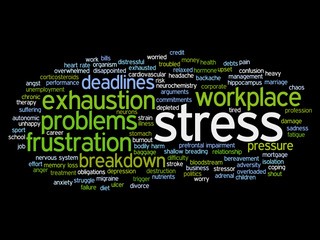Worker Wellbeing and Performance: Two Sides of the Same Coin

Dr. Jinnett spoke about the connections between employee health, wellbeing and performance at the 2nd International Total Worker Health Conference.

Dr. Jinnett spoke about the connections between employee health, wellbeing and performance at the 2nd International Total Worker Health Conference.

Learn about the recommendations for action to improve mental health in the workplace. Key recommendatons include a "how to" guide, executive training, an organizational scorecard and a recognition program to spotlight employers with psychosocially health workplaces.
Read the article https://www.ncbi.nlm.nih.gov/pubmed/29280775

Learn about injury, illness and behavioral health factors related to gender differences in the causes of workers' compensation claims. With equivalent levels of behavioral health risk factors, women were more likely than men to file a claim.
Read the article https://www.ncbi.nlm.nih.gov/pubmed/29438153

Survey of providers, employers and employees finds support for obesity as a disease but misaligned treatment and programs. More effective treatment demands a multifaceted approach that recognizes the implications of defining obesity as a disease and acting on those implications.

Workplace climate and culture are receiving increased attention from researchers, policy-makers and practitioners. Read these two reports from the Integrated Benefits Institute on the importance of worker wellbeing and workplace climate. The structure of work -- job design, work policies, and the organizational culture -- affect an employee's health, wellbeing and performance at work.
Download the reports

Workplace climate, psychosocial stressors and physical hazards all contribute to worker health, specifically hypertension, according to David Rehkopf, Stanford physician researcher and lead author of this key paper from the special issue of Health Affairs on Work and Health, February 2017.
Dr. Rehkopf commented last year during a Twitterchat around work stress "We study the structure of the job not if someone said they were stressed. The objective structure of the job is the stressor" #WorkEnvChat
The full article and link to Feb 2017 issue is well worth a read

Be sure to check-out the special issue of Health Affairs dedicated to Work and Health topics. This important journal issue covers a range of topics on the interrelationships between work and health including how cognitive and physical demands on the job affect absence and presenteeism for those with and without occupational and non-occupational illnesses and injuries. Read more https://www.healthaffairs.org/toc/hlthaff/36/2

Dr. Lerner’s research addresses the science and practice of employee health improvement with an emphasis on sustaining ability to function at work.

Dr. Burton has over 40 years of experience in healthcare and corporate occupational medicine services including healthcare data integration, wellness and disease management programs, and integrated disability management.

Dr. Frey is an Associate Professor at The University of Maryland, School of Social Work and chairs the Employee Assistance Program (EAP) sub-specialization and the Financial Social Work Initiative.